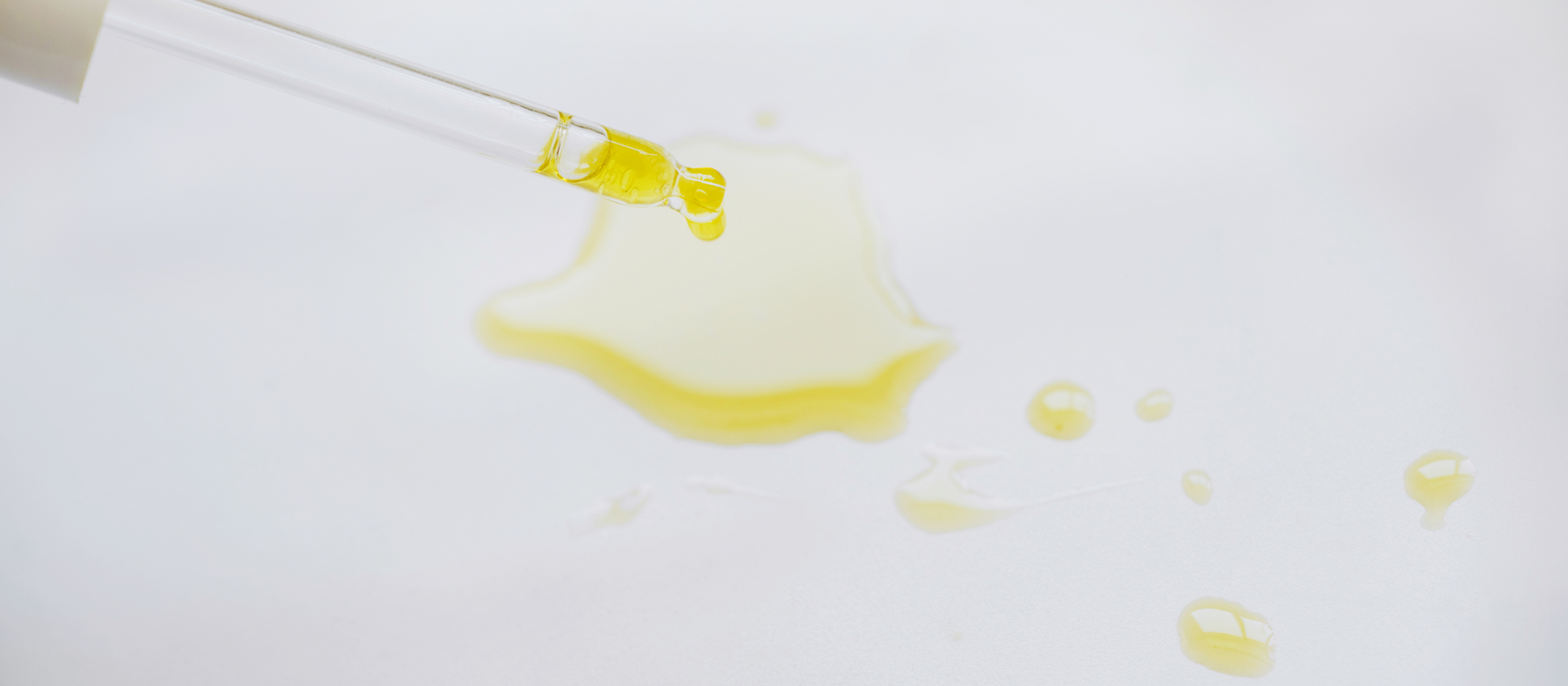
The Best Natural Oils for Your Skin
To Be Frank…It’s Complicated
Skincare is a vast and varied subject that deserves nuance in its consideration. Every human biome is different and therefore interacts uniquely with any given substance. When we discuss the additional layer of natural oils from plants that have their own variation from region-to-region or even harvest-to-harvest, the complexity intensifies.
In this article, I am going to explain the conclusions I’ve drawn about natural oils and how they play a vital role in skincare. My findings are collected from peer-reviewed scientific articles, herbalism/natural beauty professionals, and my own experience both with using these oils on my skin for more than a decade and in selling natural oil skincare products to thousands of people in the past three years alone. The contents of this blog do not constitute medical advice, but aim to illuminate experiences that you may find helpful in your skincare journey.
For the sake of clarity, I want to define what I mean in this article when I say “natural oils,” specifically in reference to oils that one might add to their skin. These oils are pressed or distilled from whole plant components, rather than produced from petroleum or synthetic compounds. Now, let’s get more specific…

We Should *Add* Oil to Our Skin?!
Yep. For years, as millennial teenagers (and I’m sure before), we were told to avoid adding oil to our skin in order to curb breakouts and blackheads. We snatched up alllll of the oil-free products we could get our hands on. Somewhere along the way, some folks split from the group and started adding oil to their skincare routine to encourage skin health. The idea being that stripping your skin of its own oil (called sebum) only prompts it to produce more oil at a faster rate in order to replace what was taken from it. Adding the right natural oils, on the other hand, can reduce not only an oily appearance to the skin, but also breakouts, inflammation, and reactions to environmental irritants (think pollution in the air, harsh fragrances on fabrics you might come into contact with, or anything you transfer to your face by touching it throughout the day).
The former is accomplished by effectively signaling to your skin that it has all the moisture it needs, so it can chill out with the sebum production. The latter protective qualities, as well as healthy water retention, are due to the occlusive nature of oils - meaning they form a protective barrier, sealing water and nutrients in, while working to keep toxins out. Protecting your skin’s moisture barrier is also how you keep it safe in extreme weather conditions like dry air, intense winds, and freezing temperatures.
Does oil absorb better with water?
Simply put, yes. It’s important to note that oils don’t hydrate skin, as they don’t contain water. Water is necessary to skin health and has a special relationship with oils. Oil actually penetrates skin most effectively in combination with water, so we always recommend applying oils to damp skin. In a pinch, patting your skin with water first will do the trick. For your body, apply oil right when you turn off the shower or get out of the bath, before drying your body at all. Consider applying a hydrosol or toner to your face to help facial oils do their job. Highly recommend giving this article a read for a deeper understanding.
Not All Oils Are Created Equal (for Skincare)
Generally speaking, I’m looking at three significant qualities of the oils I put on my own body as well as what I recommend to customers. I want them to be:
- Non-comedogenic* (unlikely to clog pores)
- Anti-inflammatory
- Free from common allergens or irritants
- Nutrient-rich
*The dermatological term “non-comedogenic” has a storied past. Until 2006, oils were tested on rabbit ears to determine their comedogenicity. In 2006, these results were challenged by human tests that gave different results of statistical significance. Every list I’ve found around the internet of oils and their 1-5 comedogenic rating has been based on the outdated studies or given no source to the data at all. I still haven’t found an exhaustive list with the updated results. I think this is because the studies are usually being funded by companies who want their specific products tested, so I can only find ingredients that have been considered in that context. When choosing products for the shelves of Ware use the comedogenic ratings that we can find as rough guides and combine that with teachings from various herbal modalities and the experiences of our community members.
Our Favorite Natural Oils for Skin
Sweet Violet Face Oil by Heilbron Herbs
- About it: SUPER HYDRATING. This is our nightly oil, and takes a bit to absorb because of just how deeply moisturizing it is. It's also refillable in-store! Jojoba oil softens and moisturizes the skin without being greasy, while sunflower oil helps stimulate the production of ceramides in the skin, which provide barrier protection and deep nourishment. Sweet Violet face oil helps to balance breakout-prone skin, calm redness and irritation, and gently nourish and hydrate combination skin.
- How we use it: on our faces every day! Apply while skin is wet with water or a toner for best absorption.
- About it: Our morning moisturizer, this lightweight oil absorbs rapidly and provides the perfect base. Oh, and it's refillable in-store!
- How we use it: on our faces every day! Apply while skin is wet with water or a toner for best absorption.
- About it: This product is batched to order in Southern California from regenerative and organically-grown sesame oil, grown by a small family farm in Mexico. This short and wholesome supply chain produces an oil that our dry skin DRINKS up. Five stars.
- How we use it: Apply generously all over your body. Absorbs best when skin is wet, so we like to apply right out of the shower. Add a glug to your drawn bath for a luxurious experience your skin will thank you for.
- About it: Oil cleansing is the act of using oil (rather than soapy substances) to clean one’s face. If you haven’t tried it, let this be your sign to consider it. When we reopened the store to the public in the pandemic, and I was wearing a mask for roughly 10 hours per day, this product completely corrected my red, bumpy, and reactive skin.
- How we use it: Whenever you need to “wash” your face, shake the bottle SUPER well (to reincorporate the manuka honey) and apply all over your face. Get a washcloth wet with warm water and cover your face with it, allowing it to steam your skin with the oil for up to a minute. Then use the cloth to remove the product completely. Follow with a hyrosol and then an oil.
- About it: Made in small batches in Black Mountain, NC, this body oil has a FOLLOWING. Truly. It was originally formulated as a face oil, so is delicate enough for sensitive microbiomes, but can be used from head (yes, even hair) to toe. We just can't get enough. Unscented or scented with essential oils.
- How we use it: Apply generously all over your body. Absorbs best when skin is wet, so we like to apply right out of the shower.
A Warning About Essential Oils
Essential oils are highly concentrated liquids containing aromatic compounds (the scent) from plants. The aromatic component is important, because it’s what separates essential oils from the other oils we’re discussing here and what makes them varying degrees of damaging to the skin. Those highly concentrated scents are a result of chemical compounds that can have a range of effects on the skin, capable of deteriorating the skin’s ability to do things like retain moisture or protect itself from harmful UV light. In high enough concentrations, essential oils can easily impart chemical burns. Neither inherently good or bad, they simply require extensive knowledge to use safely on the skin.
The scents of skincare products we carry in Ware are almost exclusively from active ingredients. This means that essential oils are used sparingly and intentionally, if at all. More likely, you’ll find aromatic components incorporated in gentler ways like oil infusion (submerging plant matter in oil to extract beneficial features) or steam distillation that produces a water-based substance called a hydrosol or hydrolat. The majority of the time, though, our products just smell like whatever plant is doing the genius work behind the scenes. You can expect green, warm, fruity, earthy, and occasionally lightly floral scents from the various plant oils in the lines we carry at Ware.
The lotions and creams we carry at Ware also contain oils that we can get behind, so if face and body oil still aren’t for you, you can moisturize in other ways! Check out this collection for more.
—-----------------------------------
References
https://www.byrdie.com/how-to-make-skin-less-oily-4686907
https://www.byrdie.com/argan-oil-for-skin-5080152
https://www.byrdie.com/how-to-protect-skin-moisture-barrier-5092498
https://www.byrdie.com/jojoba-oil-for-skin-4783234
https://www.youtube.com/watch?v=ggvKSjaJ8Fw
http://www.clinmedres.org/content/15/3-4/75.full.pdf+html
https://www.sciencedirect.com/science/article/pii/S0190962205046001






Leave a comment